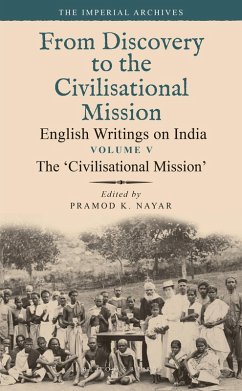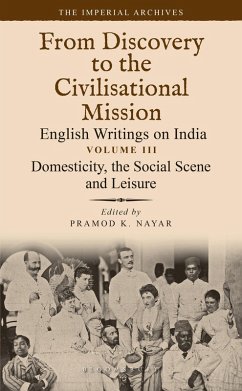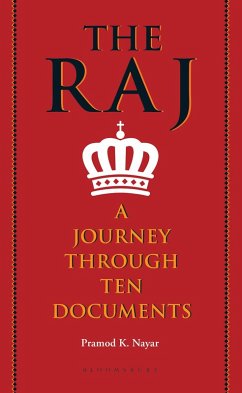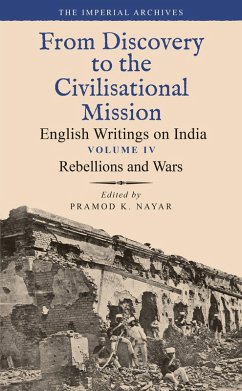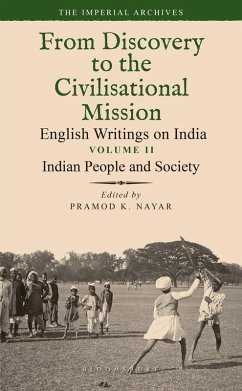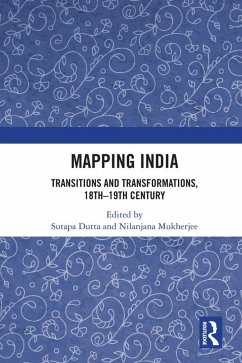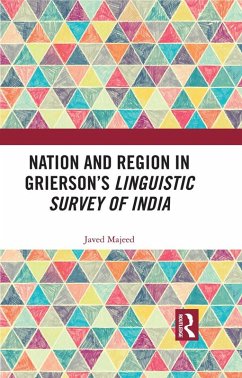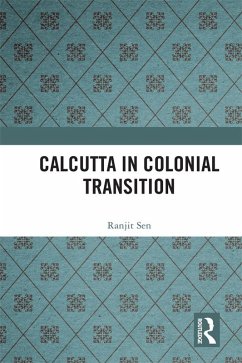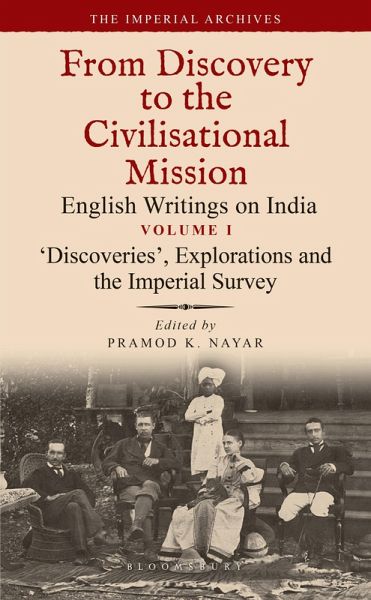
'Discoveries', Explorations and the Imperial Survey (eBook, PDF)
From Discovery to the Civilizational Mission: English Writings on India, The Imperial Archive, Volume 1

PAYBACK Punkte
35 °P sammeln!
India and the subcontinent stimulated the curiosity of the British who came to India as traders. Each aspect of life in India - its people, customs, geography, climate, fauna and flora - was documented by British travelers, traders, administrators, soldiers to make sense to the European mind. As they 'discovered' India and occupied it, they also attempted to 'civilise' the natives. The present volumes focus on select aspects of the imperial archives: the accounts of "discovery" and exploration - fauna and flora, geography, climate - the people of the subcontinent, English domesticity and socia...
India and the subcontinent stimulated the curiosity of the British who came to India as traders. Each aspect of life in India - its people, customs, geography, climate, fauna and flora - was documented by British travelers, traders, administrators, soldiers to make sense to the European mind. As they 'discovered' India and occupied it, they also attempted to 'civilise' the natives. The present volumes focus on select aspects of the imperial archives: the accounts of "discovery" and exploration - fauna and flora, geography, climate - the people of the subcontinent, English domesticity and social life in the subcontinent, the wars and skirmishes - including the "Mutiny" of 1857-58 - and the "civilisational mission". Volume 1 'Discoveries', Explorations and the Imperial Survey consists of documents that deal with England's discovery of India, its exploration and mapping of the subcontinent. The texts collected here are accounts of how the British 'discovered' the subcontinent. The narrative of discovery, with the freshness of the 'new', was couched very often in the rhetoric of wonder. But this sense of wonder, even astonishment in some cases at the variety, magnitude and sheer difference of the land and its people, was tempered over time with a narrative of exploration. If the 'discovery' moment had a surprise, awe and a sense of uncertainty at facing something totally new-which, in many ways, the subcontinent was-in the early writings of the seventeenth century, the tone, emphasis and attitude shifts later on.




